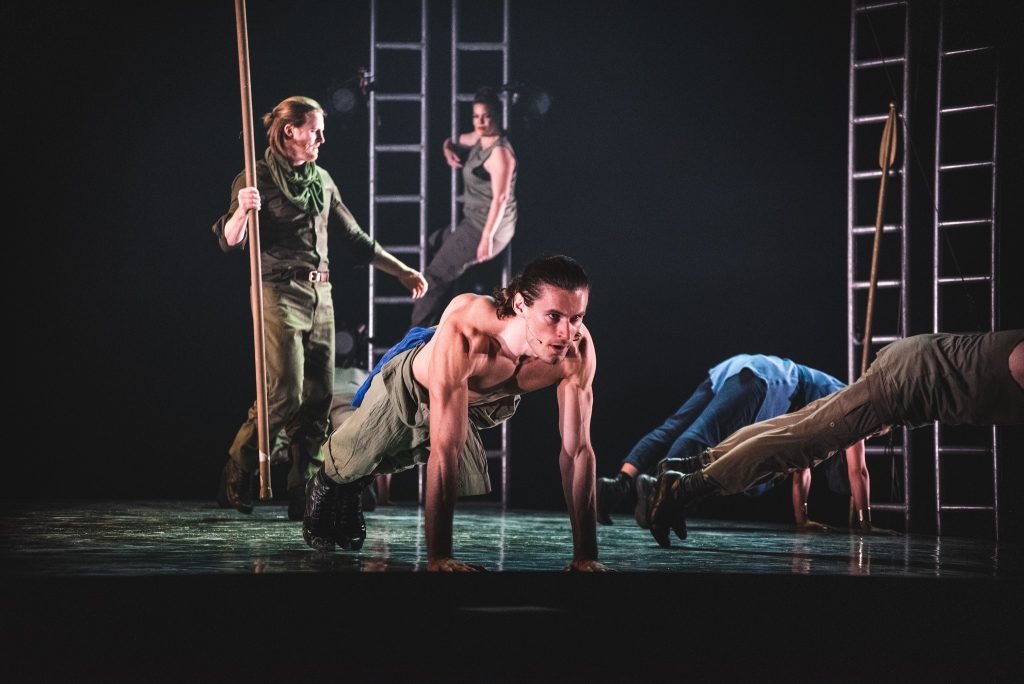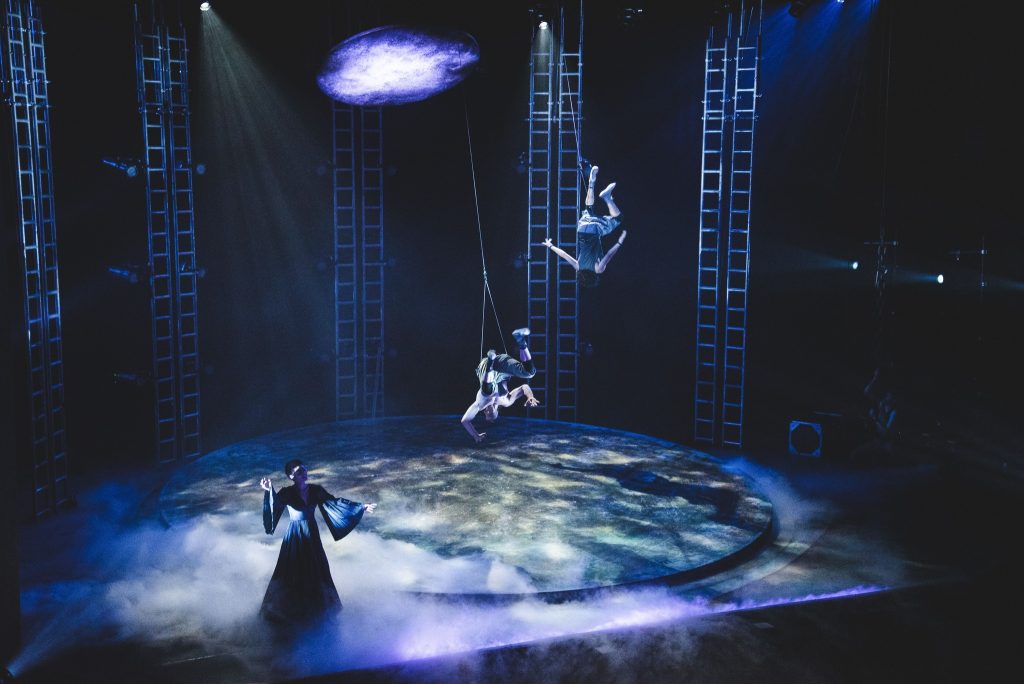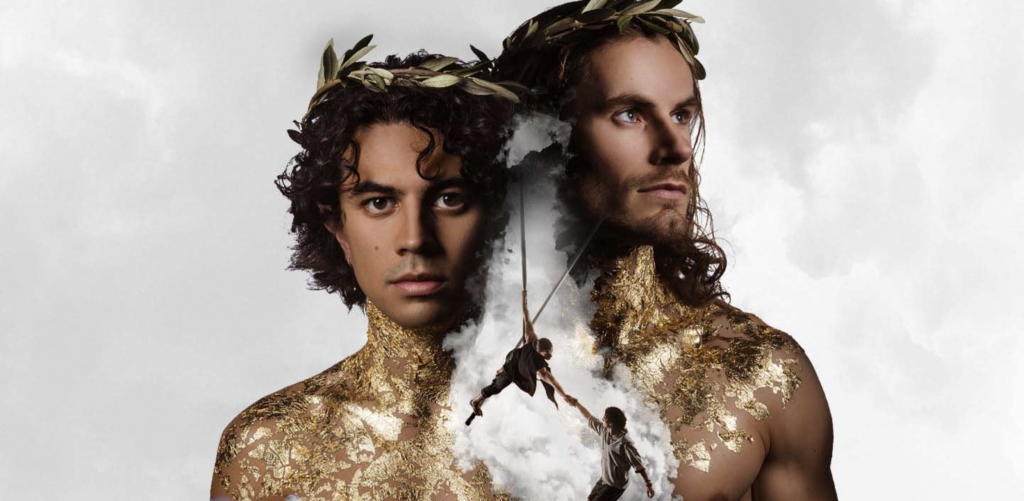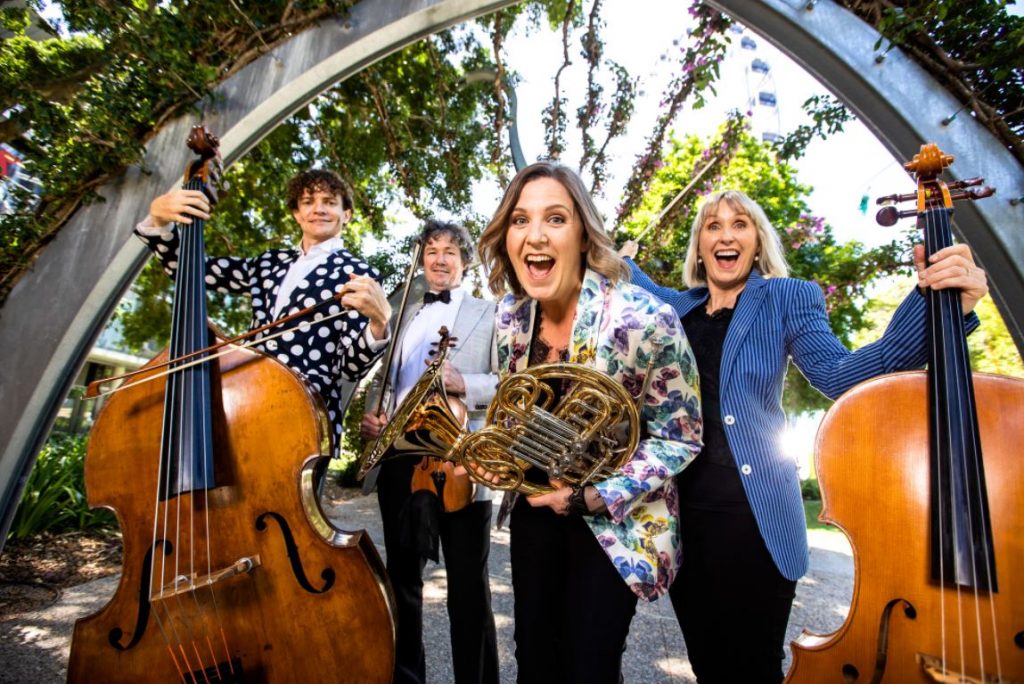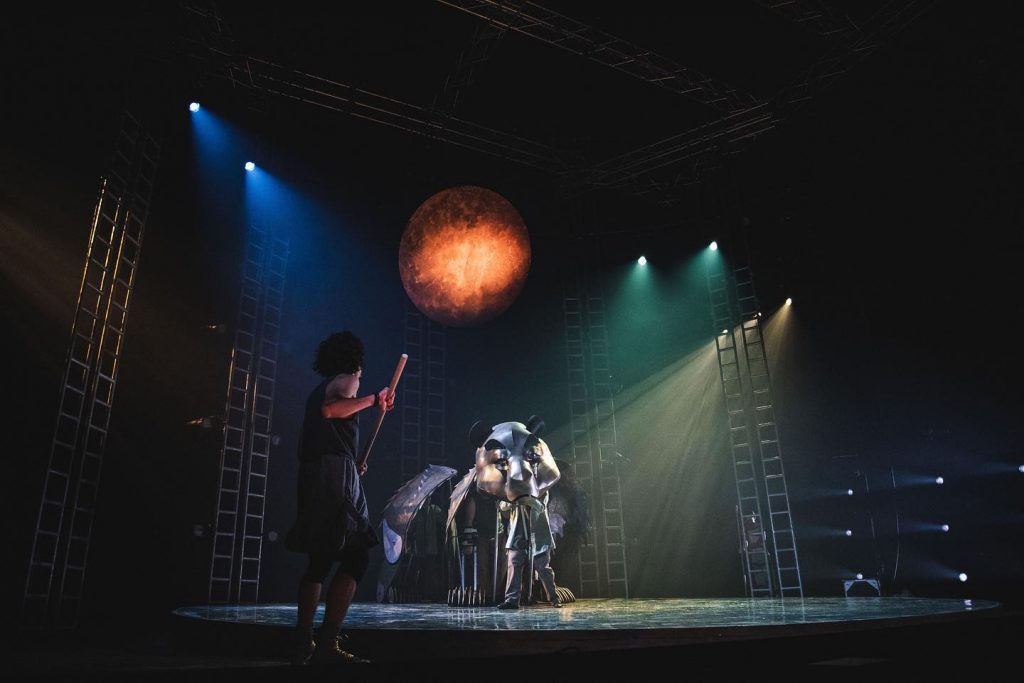
‘Holding Achilles’ // Dead Puppet Society and Brisbane Festival
‘Holding Achilles’ was transformative.
In a theatrical collaboration of epic proportions, QPAC’s Playhouse stage was transported into the grandiose mythical world of ‘The Illiad’ for Dead Puppet Society and Legs On The Wall’s ‘Holding Achilles’.
This new production tells the Greek classic of Achilles through the lens of his relationship with his lover, Patroclus – a grand myth filled with war, loss, love and loyalty. Queer stories such as these are so important to tell on a large scale because they prove that queer people always have and always will exist throughout time and place.
One of the absolute highlights of this production was the music composed by Tony Buchen and Chris Bear and performed by former Eurovision competitor, Montaigne. Montaigne possessed an incredibly compelling and ethereal stage presence that lit up every scene. Their character Thetis, the mother of Achilles and mythologically a sea nymph, floated on stage and delivered a beautiful vocal performance, accompanied by stirring music. Their performance complimented more physical scenes that allowed the romantic nature and inherent height of the story to really soar. Montaigne’s performance in ‘Holding Achilles’ should serve as a reminder to theatre makers everywhere of the power that trans-disciplinary collaboration can have in theatre.
The lighting design, by Ben Hughes, was nothing short of awe-inspiring. It was intricate, reactive and told the story with the spectre it deserved.
As one would expect of a Dead Puppet Society’s production, the puppeteering and blend of physical theatre with puppets was a sight to behold. Between uniquely designed stilts to look like a horse’s legs that allowed their performer to kneel down, a baby bear that conjured audible reactions of both adoration and sympathy alongside a fearsome Mother Bear, as well as the use of counterweights and ropes to make performers ‘fly’, ‘Holding Achilles’ is a carefully choreographed well-oiled machine that combines elements of modern theatre trends with a classic story and ingenious visual artistry.
Legs On The Wall, known for its physical theatre compositions, gave space for the intimacy and violence of Achilles’ life to play out on stage. While some of the choreography was repetitive, certain scenes such as one where Achilles tries to drown himself were enhanced exponentially by the use of physical language, which said so much more than words ever could.
The costume design by Anna Cordingley varied in quality across the cast. Some of the characters were clothed in incredibly intricate and beautiful costumes that represented so much of their characters and often their place in Greek society. Whereas others, particularly the core trio of Ajax, Patroclus and Achilles, were clothed very minimally, which made it difficult to see their transition between childhood and adulthood.
The cast of ‘Holding Achilles’ presented an immense amount of physical acumen but was at times failed by the lack of character development in the script. Patroclus played by Karl Richmond was soft and kind-hearted with an edge of underlying brutality that drew him closer to Stephen Masden’s Achilles. Both Richmond and Masden embodied contrasting opposites of each other. The pair had an abundance of romantic chemistry, although their relationship and their characterisation varied significantly from the representations in Homer’s original myth.
Nic Prior played Chiron the Centaur, who was the mythical creature responsible for the pair’s coming-of-age story. Prior’s performance was reminiscent of the mentor figures that so many queer youths rely on whilst finding their place in the. They carried an incredible stature and composure during aerial stunts and worked their physicality as the centre into creating a magical transformative performance.
Lauren Jackson’s King Agamemnon was fearsome and almost satirical, playing a hyperreal brutal version of the Greek King. Jennifer Vuletic’s Chrsyses, the priest of Apollo who curses Agamemnon’s troops for stealing a child from her was heartbreaking and celestial.
Many of the ensemble members gave powerful performances, with each individual making up a puzzle piece of this larger-than-life story. While the performers themselves were physically strong and compelling, the characters were not as developed as they could have been, leaving some to lack a certain sense of energy or power within the larger storyline. They often strayed far from the original legends and instead delved into a romanticisation of Greek mythology. As such, emotional heights were left unmet as the story sped through the decade-long trojan war in the second act.
While this show was a visual and aural feast, it lacked energy and a sense of danger that would have heightened the story to the mythological level it deserved to reach. The script and myth adaptation itself required development. Perhaps if more emphasis was placed on the storytelling, then this beautiful queer love story for the ages would not have been lost in the grandeur of the material nature that was a focal in ‘Holding Achilles’. Nevertheless, ‘Holding Achilles’ will certainly have a future as a landmark piece that challenges the limits of what theatre can be.
‘Holding Achilles’ performs until Saturday, 10 September 2022. For more information, visit Dead Puppet Society’s website.




